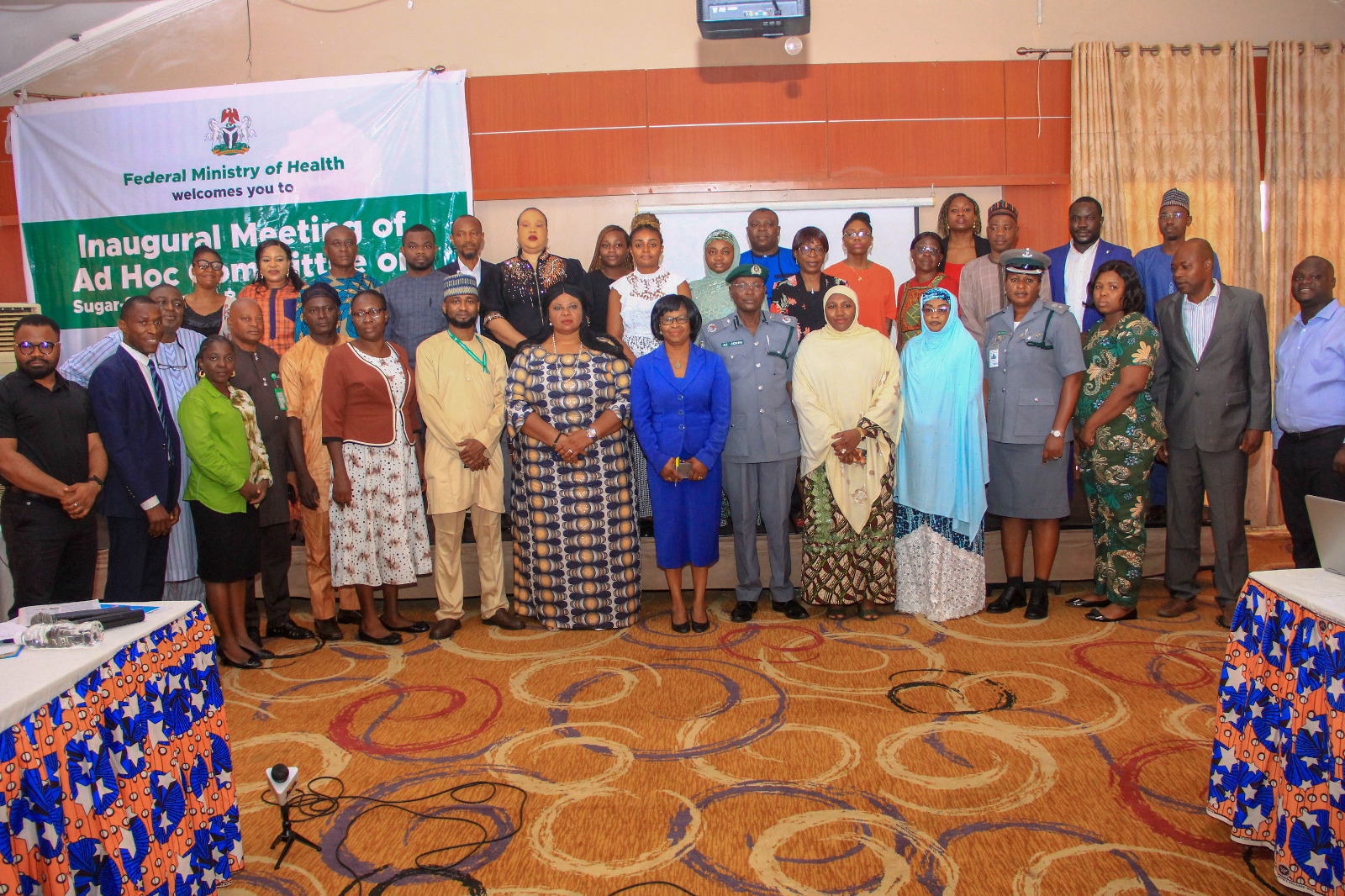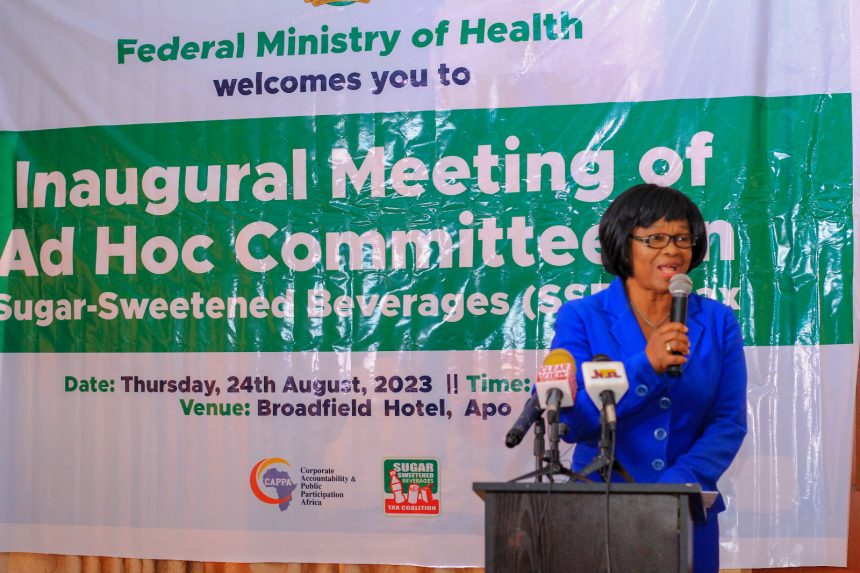- … Warns Of Looming Liver Cancer, kidney Diseases Outbreak
An estimated 38.6 million soft drinks are sold daily in Nigeria, making it the highest soft drink consuming nation in the world, Dr. Amadi Dorothy, Deputy Director, Non-communicable Diseases, Public Health Department of Federal Ministry of Health has said.

Dr. Amadi, gave the hint recently at inaugural meeting of the ad-hoc committee organized by the Non-Communicable Disease Division of the Federal Ministry of Health had representatives of different Ministries, Departments, and Agencies of government with important roles to play in the implementation of the SSB tax for the tackling of Nigeria’s NCDs burden.
She warned that the explosion in consumption of SSBs in Nigeria is a public health concern that is connected to the rise in non-communicable diseases such as weight gain, obesity, type 2 diabetes, heart and kidney diseases, and cancer, among others.
The Public Health expert explained that SSBs is any drink that contain natural or added sugar including Soda, fruit drinks, sports drinks, sweetened water, coffee, tea beverages added sugar, energy drinks, maltose drinks et cetera.
“NCD is associated with frequent consumption of SSBs leading to increase in obesity, diabetes, incidence of dental issues, heart diseases, like stroke and hypertension.
“SSBs consumption has also been linked to all forms of cancers, an estimated 38.6 million of soft drinks are sold daily in Nigeria, making Nigeria the highest soft drink consuming country in the world”.
Amadi however noted that SSB tax has been identified as the most effective way of reducing the consumption of SSBs, consequently reducing the incidence and prevalence of NCDS.
It is recalled that a recent study published in Jama Network found that those who drank one or more sugar-sweetened beverages daily had an 85% higher risk of liver cancer and 68% higher risk of mortality due to chronic liver disease compared to those who had three or fewer sugar-sweetened beverages per month.
The study was done on 98,786 postmenopausal women aged 50 to 79 who were enrolled in the Women’s Health Initiative from 1993 to 1998. During this time, the women documented how many sugar-sweetened beverages they drank daily. This did not include naturally sweet drinks like fruit juice. Researchers then followed up with participants in March 2020 to assess health changes.
During that follow-up, 207 women had developed liver cancer, and 148 had died from chronic liver disease. When researchers analyzed these results against questionnaires about diet habits, they found that women who consumed one or more servings per day of sugar-sweetened beverages had a significantly higher risk of liver cancer than those who did not.
Researchers also addressed artificially sweetened beverages but found that women who consumed one or more of these per day did not have a significantly higher risk of liver health complications.
This study was observational and only completed on women, so more research is needed to confirm causation and explore possible explanations for this finding. Nevertheless, it was a large study and does align with other research confirming that, more often than not, added sugar isn’t beneficial for overall health.











